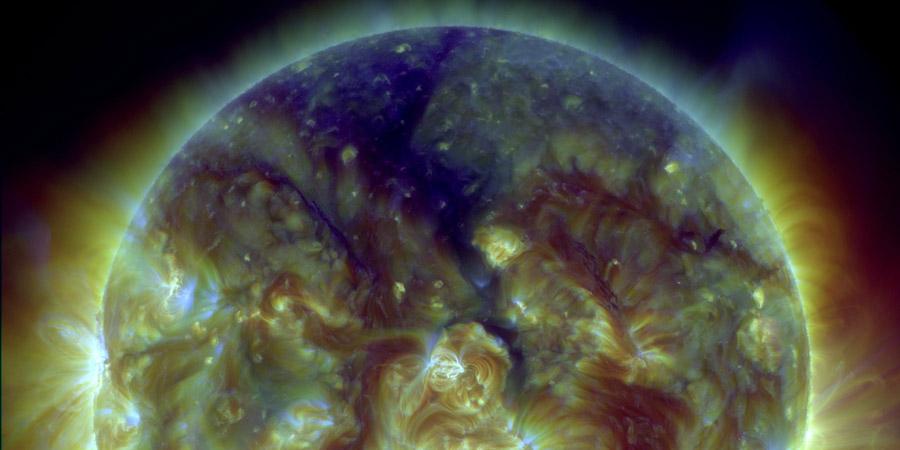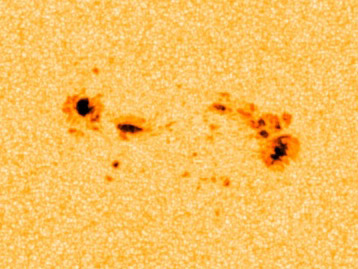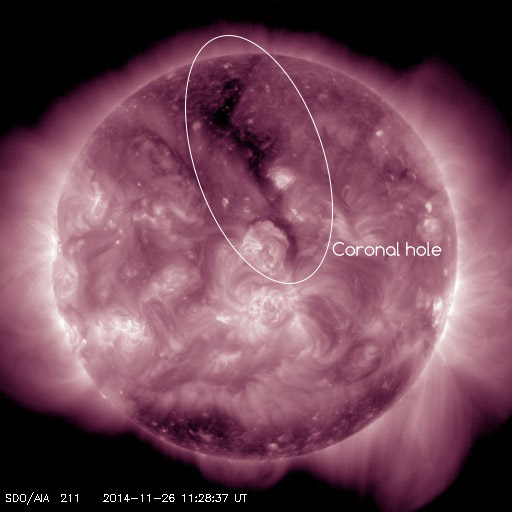Low solar activity, coronal hole stream
Wednesday, 26 November 2014 11:41 UTC

Solar activity has been low (C-class solar flares only) for 10 days in a row now despite the presence of sunspot region 2209. This sunspot region had a Beta-Gamma-Delta magnetic layout as it transited the disk but only managed to produce three M-class solar flares all while it was close to the limb on the 15th and 16th of November. Sunspot region 2209 is now leaving the Earth-facing disk which leaves the question: are there any other sunspot groups that could ramp up the solar activity?
Answer: not right now. None of the sunspot groups that remain on the earth-facing disk right now are complex enough to produce a strong (M or X-class) solar flare. We do have one sunspot group to keep an eye on in the days ahead and that is sunspot region 2219. This sunspot region is facing Earth right now and has been growing fast over the past 24 hours. It still lacks the magnetic complexity needed for a strong solar flare so solar activity will likely continue at low levels for now but should it continue to develop and develop a more complex magnetic layout we could see an increase in flaring activity.

Coronal hole
A narrow nothern hemisphere coronal hole with an equatorial extension is now in an earth-facing position. Solar wind streaming from this coronal hole could arrive at Earth in about 3 days from now. No geomagnetic stroming is expected but we could see some geomagnetic instability with enhanced auroral displays at high latitude locations when the stream arrives.

Images: NASA SDO.
Thank you for reading this article! Did you have any trouble with the technical terms used in this article? Our help section is the place to be where you can find in-depth articles, a FAQ and a list with common abbreviations. Still puzzled? Just post on our forum where we will help you the best we can!
Latest news
Latest forum messages
Support SpaceWeatherLive.com!
A lot of people come to SpaceWeatherLive to follow the Sun's activity or if there is aurora to be seen, but with more traffic comes higher server costs. Consider a donation if you enjoy SpaceWeatherLive so we can keep the website online!

Space weather facts
| Last X-flare | 2025/05/13 | X1.1 |
| Last M-flare | 2025/05/14 | M5.2 |
| Last geomagnetic storm | 2025/05/03 | Kp5 (G1) |
| Spotless days | |
|---|---|
| Last spotless day | 2022/06/08 |
| Monthly mean Sunspot Number | |
|---|---|
| April 2025 | 140.6 +6.4 |
| May 2025 | 74.9 -65.7 |
| Last 30 days | 99.8 -31.1 |


